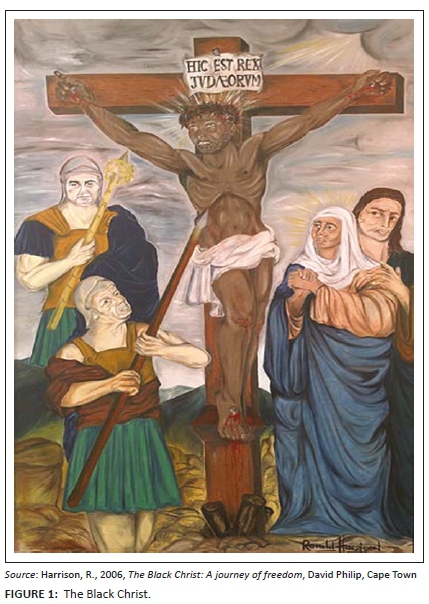Teaching The Gospel Vs. Teaching The Scriptures: What’s The Difference? In the world of ministry and biblical study, we often hear phrases like “preach the gospel” or “teach the Word.”
These terms, while frequently used interchangeably, actually describe distinct responsibilities and focal points within the realm of teaching and spiritual instruction. To truly honor the call to be students, teachers, and doers of the Word, we must understand the difference between teaching the gospel and teaching the scriptures. This study will break down the definitions, responsibilities, and divine expectations of both.
Defining the Gospel: The Good News of the Kingdom
The word gospel in the New Testament comes from the Greek word εὐαγγέλιον (euaggelion), which is Strong’s Concordance number 2098. It means “good tidings” or “good news,” and is specifically used to refer to the good news concerning the coming Kingdom of the Messiah.
According to the biblical message, this gospel is centered on the life, ministry, death, resurrection, and future return of the Messiah or Anointed One, commonly referred to as Jesus Christ. The gospel teaches that He is the King of the coming Kingdom, the restorer of righteousness, and the Savior of mankind.
In Mark 1:14–15, we see this defined directly:
“Now after that John was put in prison, Jesus came into Galilee, preaching the gospel of the kingdom of God, and saying, The time is fulfilled, and the kingdom of God is at hand: repent ye, and believe the gospel.”
Christ was not simply declaring personal salvation, but announcing a kingdom—a government that would be led by the laws, judgments, and righteousness of the Almighty. Therefore, teaching the gospel means:
- Proclaiming the coming Kingdom of Heaven
- Teaching repentance for entry into that Kingdom
- Preaching Christ’s identity, His mission, His sacrifice, and His role as King
This is beautifully summarized in Romans 1:16:
“For I am not ashamed of the gospel of Christ: for it is the power of God unto salvation to every one that believeth…”
Defining the Scriptures: The Full Counsel of the Word
In contrast, the word scripture comes from the Greek word γραφή (graphé), Strong’s Concordance number 1124, which means “writings” or “a passage of scripture.”
This refers to the entire body of the holy writings, including the Law, the Prophets, the Writings (Old Testament), and the writings of the Apostles (New Testament).
Teaching the scriptures, then, goes beyond the gospel. It means:
- Teaching the history of the Most High’s people
- Instructing in laws, commandments, and principles
- Revealing prophecy, including the return of the Anointed One and beyond
- Clarifying doctrines, covenants, judgments, and ordinances
- Unfolding the truth and order that governs heaven and earth
Paul makes this distinction clear in 2 Timothy 3:16–17:
“All scripture is given by inspiration of God, and is profitable for doctrine, for reproof, for correction, for instruction in righteousness: That the man of God may be perfect, thoroughly furnished unto all good works.”
Notice, Paul does not say, “all gospel”—but all scripture. While the gospel is a key part of the scriptures, it is not the full extent of them.
What Happens When We Confuse the Two?
When we only teach the gospel, we run the risk of giving believers only the beginning of the journey. We introduce them to Christ, but leave them without the depth of His instructions, laws, and the historical foundation on which His kingdom is built.
The result is what many churches experience today: spiritual immaturity, confusion about the Old Testament, and believers who know the Savior but don’t understand His kingdom. They know Christ to a degree, but do not understand the scope of the world as it pertains to Christ and their lives.
The Messiah spoke to this when He said in Matthew 5:17–19:
“Think not that I am come to destroy the law, or the prophets: I am not come to destroy, but to fulfill… Whosoever therefore shall break one of these least commandments… shall be called the least in the kingdom of heaven…”
Teaching only the gospel and ignoring the law, prophecy, and writings—limits the full picture of the Word.
Teaching the Gospel: Focused on the King and His Coming
To teach the gospel is to prepare people for the coming reign of Christ. It focuses on:
- Repentance and salvation (Acts 2:38)
- Christ’s sacrifice and resurrection (1 Corinthians 15:1–4)
- Faith in the Anointed One and His name (Acts 4:12)
- Hope in the kingdom to come (Luke 22:29–30)
This teaching brings people to initial faith and spiritual rebirth.
Teaching the Scriptures: Equipping the Saints for the Kingdom
To teach the scriptures, however, is to equip the saints with the knowledge, law, and wisdom of that Kingdom. This includes:
- The commandments and ordinances (Exodus 20; Deuteronomy 6)
- The history of the patriarchs and their covenants (Genesis 12; Genesis 17)
- The wisdom writings (Proverbs, Ecclesiastes)
- The prophets, who foretell both judgment and redemption (Isaiah, Daniel, Ezekiel)
- The letters of the apostles, which correct and build up the church (Romans through Revelation)
- And gives the ability to discern the truth as oppose to false doctrines
It also includes hidden wisdom that reveals the identity of the people (and nations and lineages), the purpose of the nations, and the plan for the restoration of the nations and creation.
Scriptural Harmony: Both Are Necessary
It is not a matter of choosing one over the other. The gospel is the gate, but the scriptures are the path. The Messiah Himself opened the eyes of His disciples using both. In Luke 24:27:
“And beginning at Moses and all the prophets, he expounded unto them in all the scriptures the things concerning himself.”
Even the Anointed Prince taught the scriptures to explain the gospel.
Conclusion: Grow Beyond the Gate
If you are a teacher, preacher, or disciple of the Word, understand this vital truth: preaching the gospel saves lives, no doubt; but teaching the scriptures builds the kingdom.
In this hour, the Almighty is raising up people who are hungry not just for good news, but for truth, for structure, for order, and for understanding. The gospel brings people in. The scriptures grow them up and turns them into a Kingdom of Priests, a holy nation.
So don’t stop at the gate—walk the path, study the full counsel of the Word, and teach others to do the same.
Until next time…

Minister Koko
Power be with you!
Join the discussion in AKOPPI Skool

